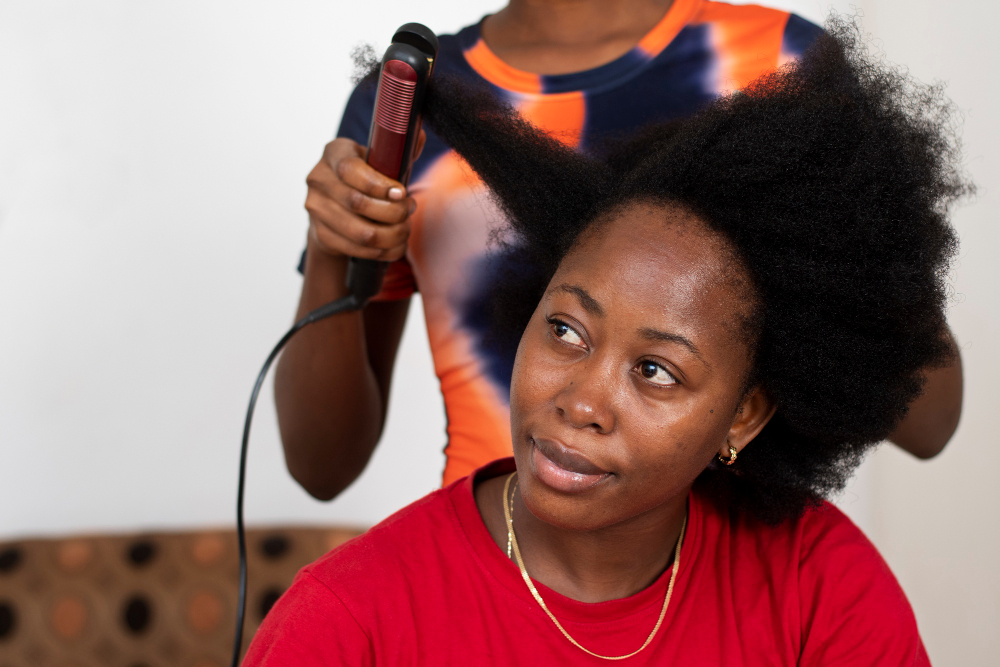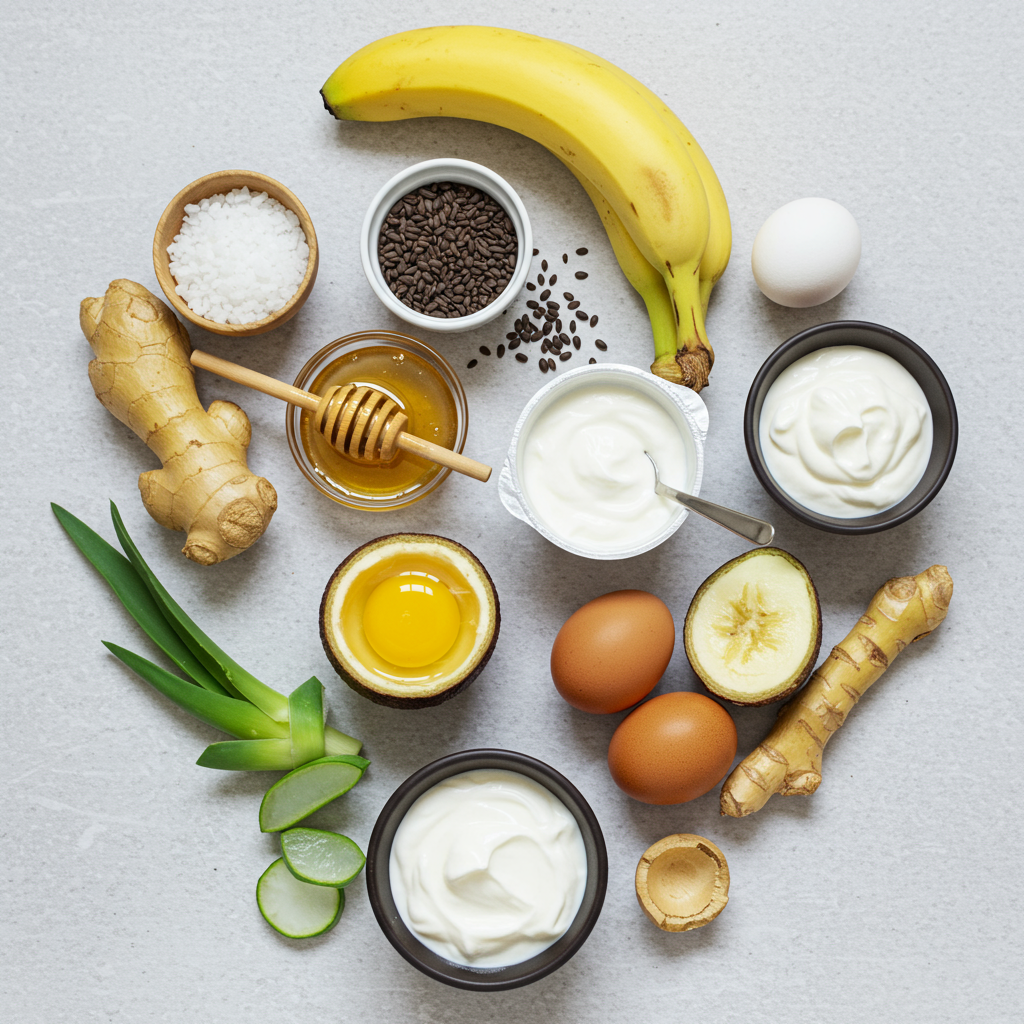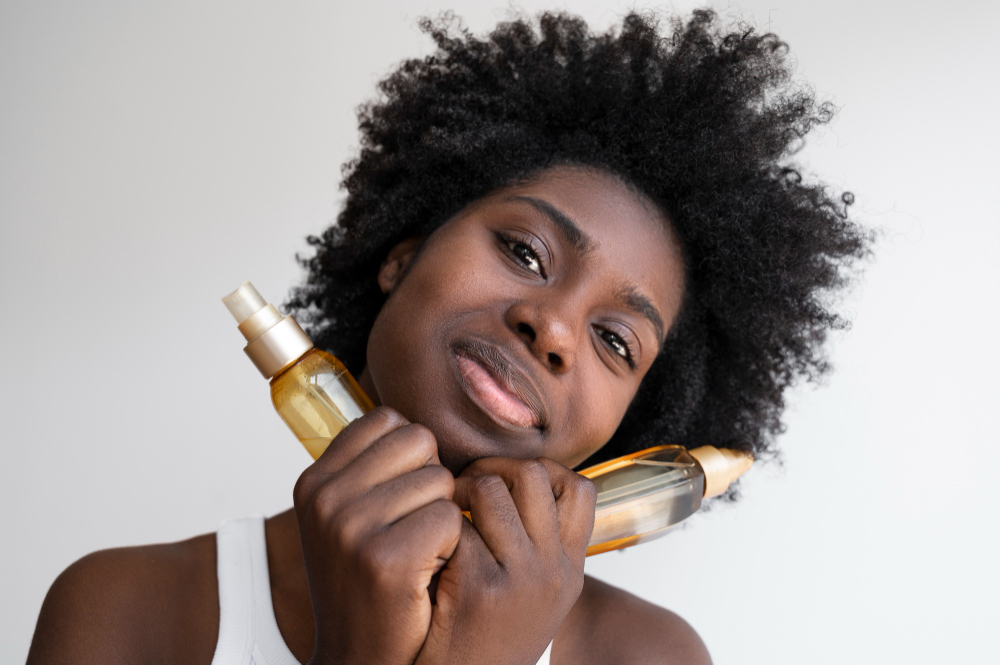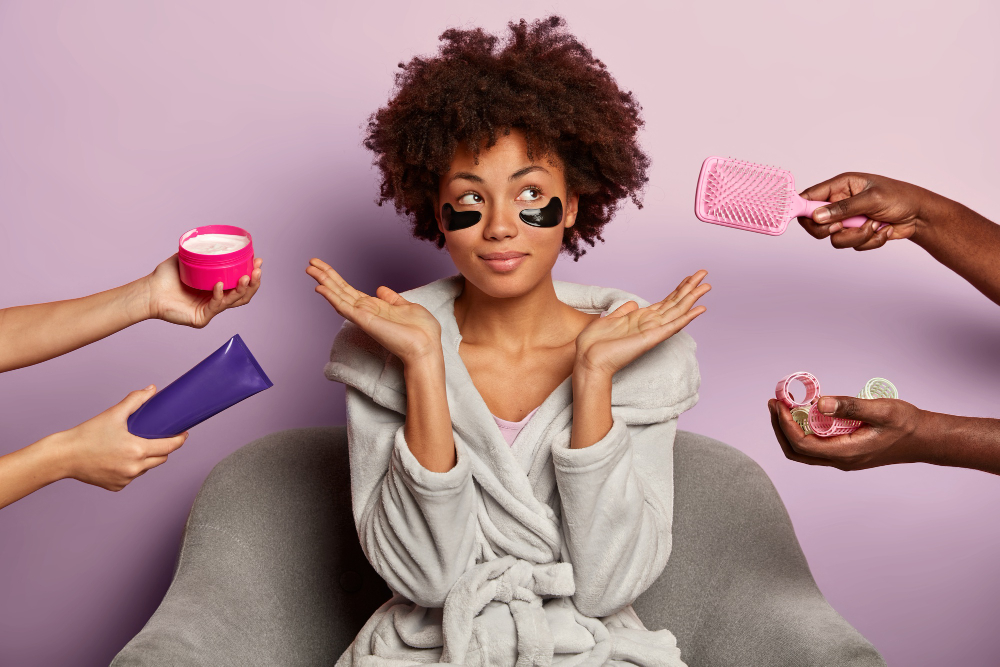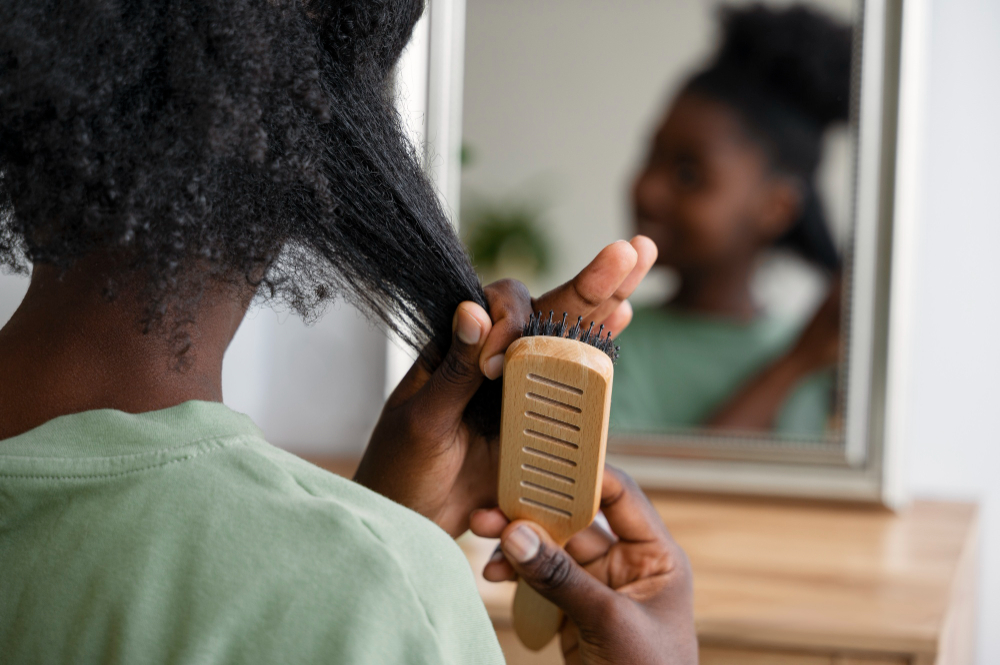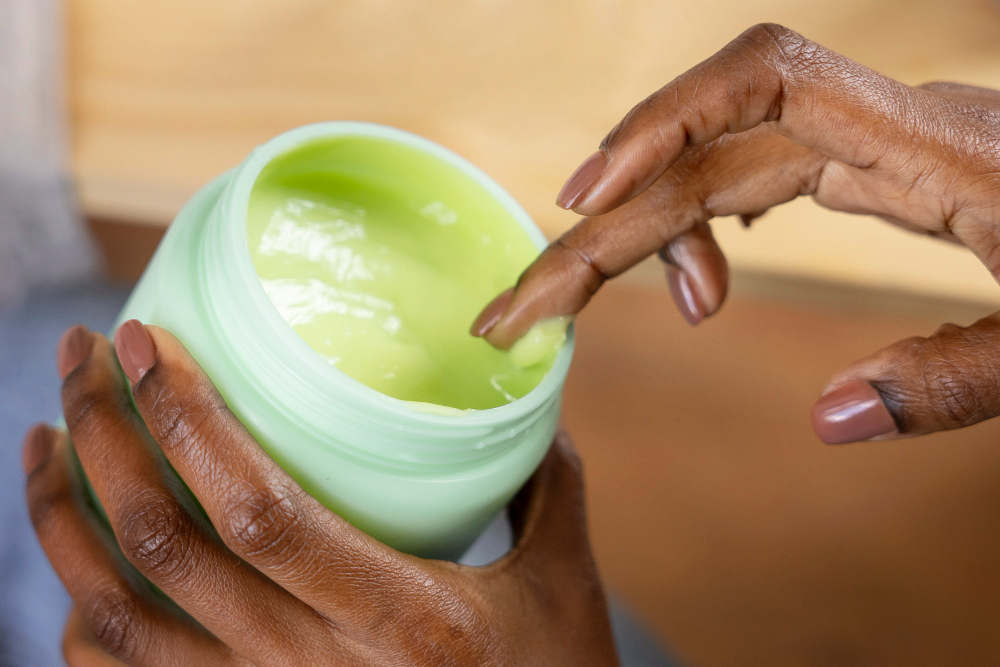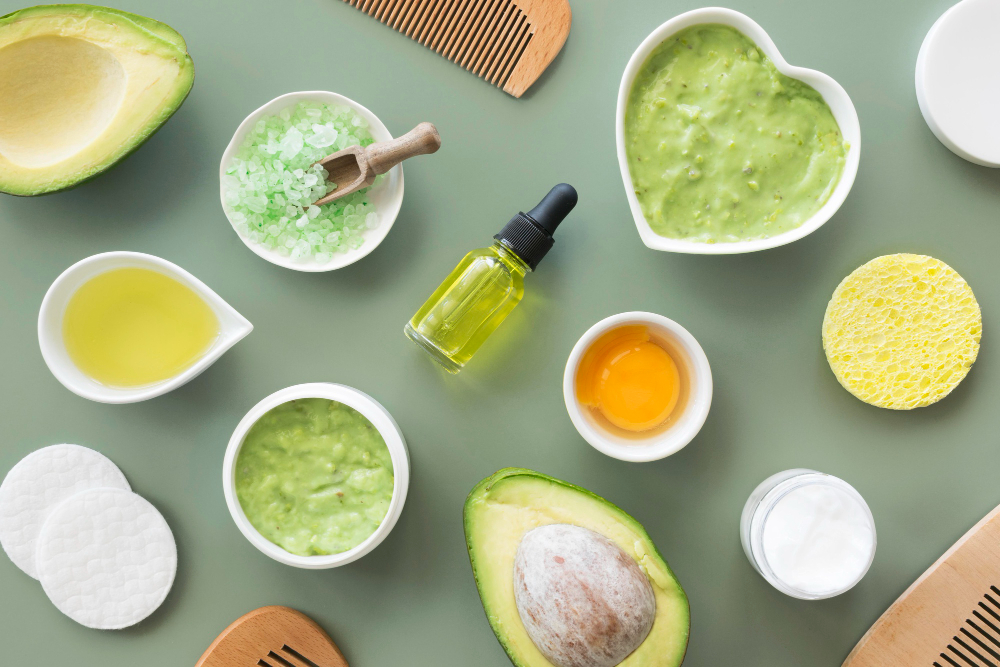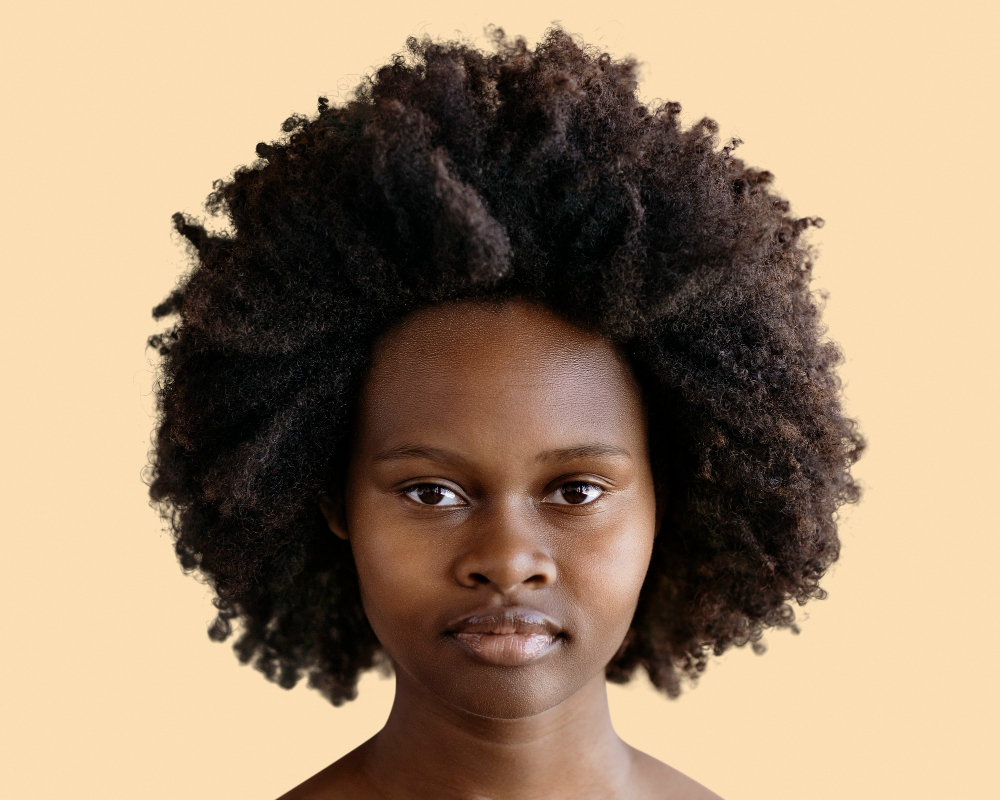Trending Article · 11 mins read
How to Stop Hair Breakage on Type 4 Hair
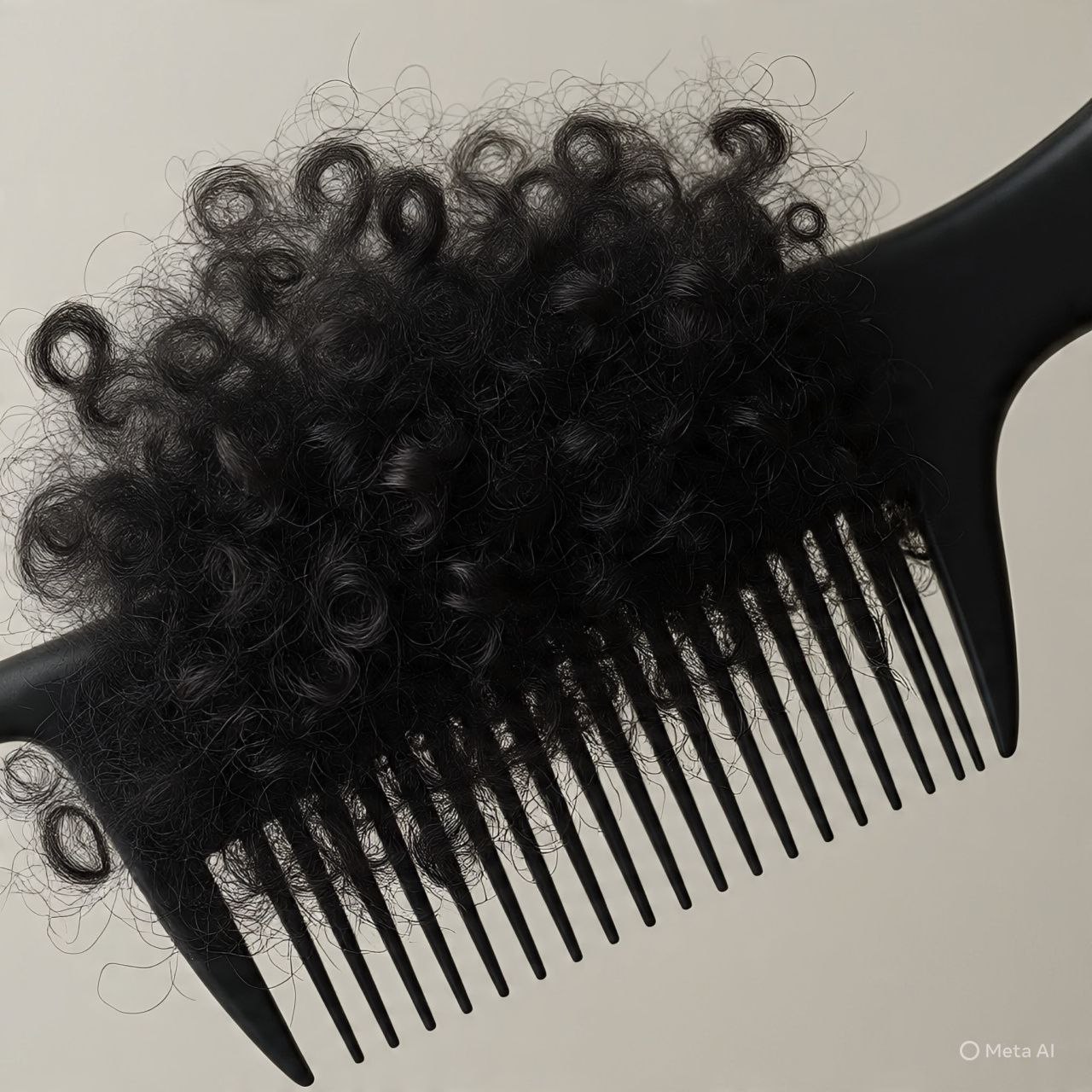
Hair breakage can be really frustrating.
It can be alarming seeing your palm filled with so many hair strands that can form a football just from combing. Okay, okay, maybe a football is too much, but you get the point.
What is hair breakage? Why does type 4 hair break so much? How can you stop or reduce hair breakage in your hair?
Let’s get right into answering these questions.
What is Hair Breakage?
Hair breakage refers to the snapping, splitting and falling of too many hair strands.
Usually, hair sheds about 50-150 strands per day, so some amount of hair on the floor or shower is normal. However, excessive amounts are what we term breakage.
So why does it break?
Why Does Type 4 Hair Break?
Many factors can cause or lead to breakage. A few of them include:
1. Bad hair practices
Let's face it, sometimes we are guilty of being rough with our hair, either during a protective style takedown, combing dry hair, rubbing our hair against towels or even making the wrong product choice.
2. Dryness can lead to hair breakage
Now, we all know that in taking care of 4C hair, moisture and hydration are key.
But somehow 4C hair is prone to dryness due to its curly or coily structure, natural oils might struggle to reach the strands and when you don't moisturize enough, these strands snap and break.
3. Tight hairstyles can lead to hair breakage
Yes, we said it! That tight, sleek ponytail you like so much might just be setting your hair up for breakage. It's not just ponytails, even tight “protective styles” that put tension on your scalp can cause your hair to break.
4. Medical conditions
Some medical conditions, unfortunately, can disrupt normal body functions, which might affect hair growth and lead to breakage. When such situations are the cause of hair breakage, seeking the help of a medical professional is the best course of action.
5. Stress and diet
Chronic stress has long been linked to hair loss , and breakage is a major culprit in hair loss. So, if your lifestyle often leaves you stressed, you can experience breakage.
It is no longer news that “you are what you eat” , so if your plate is only filled with processed foods, refined sugars, and the like, eventually it'll show in your hair, it might be more prone to breakage.
Now that we've talked about some causes of hair breakage, how do you stop or prevent it?
How to Stop Hair Breakage
1. Stop heat styling
This falls under bad haircare practices; heat application over time causes hair thinning, which in the long run can lead to breakage.
The fact is, focusing on your natural hair, growing it out healthy and lengthy, sometimes requires sacrifices. Sacrifices like not joining every braid trend, probably because they can put too much tension on your scalp and edges.
Or avoiding that sleek ponytail hairstyle because it'll require blow-drying your hair. But if you can't do without heat, please use a heat protector and use a low or medium temperature.
2. Stick to your wash day routine
Don't miss your wash days. Wash days give you the opportunity to take care of your hair.
Allow your hair to breathe, keep it clean and most importantly, take note of the changes, just basically pamper your hair. If your schedule changes and you can't keep up, it's best to find a natural hair stylist to help you care for your hair and keep up with your appointments.
3. Deep condition consistently
If you are a natural hair girlie and you don't deep condition your hair, sis, you're doing it wrong.
A deep conditioner is one of the best ways to give your hair the moisture it deserves.
Deep conditioners are meant to penetrate your hair shaft and nourish or moisturize your hair. Regular deep conditioning will definitely give your hair what it needs and prevent hair breakage.
4. Detangle with care to prevent hair breakage
The detangling process is where breakage happens easily. When you detangle, you glide a tool or your fingers through your hair; if you aren't gentle or using the right tool, it can snag and drag your hair strands, leading to breakage.
Many naturals find that when they use their fingers first to detangle, it's smoother for the detangling brush to glide through.
Whether you prefer fingers, a brush or a comb, ensure you do it gently and move from your ends to the roots.
5. Wear protective styles to prevent hair breakage
Protective hairstyles should do their job, which is to keep your hair strands protected. Over-manipulative hairstyles can put tension on your scalp, and during take-down, you might experience breakage.
6. Always wear a silk scarf or satin bonnet
Unlike cotton fabrics, where the fibres are quite rough, the fibres of silk or satin are tightly woven and have more slip, so it's easier for your hair strands to glide through with no damage.
For extra care or if bonnets aren't your style, you can use silk pillow cases. The bottom line? Keep your hair protected even when you sleep.
7. Explore natural products
The use of natural products or the practice of Ayurveda in natural hair care is a great approach that can help prevent or stop breakage.
The right oils, such as Castor oil and Argan oil, that promote hair growth and strengthen hair strands can be incorporated into your routine to prevent breakage and support length retention.
8. Eat right
The importance of food in hair care cannot be overemphasised. Foods rich in iron, folic acid, among others, can support hair growth and reduce hair breakage.
9. Moisturize properly and regularly
We can't stop preaching the goodness of moisturizing your hair. Whether you use the LOC or LCO method, ensure you're infusing enough moisture in your hair strands.
Don't leave your hair to go dry and brittle, have a moisturising routine and stick to it.
10. Drink lots of water for hydration
Drinking lots of water keeps you hydrated from within, and hydration is key for healthy hair growth. So, fill up that bottle of water and drink to healthy hair and less breakage.
Wrapping up
The process of stopping or preventing hair breakage can be challenging, but it's not impossible to go from football-sized shed hair to tennis ball 😁
With the best practices and proper diet, you are well on your way to getting healthy hair.
Looking for support on this journey? Join our community of like-minded women.
